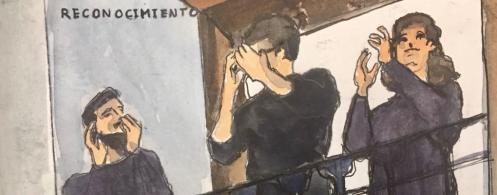
From the very beginning of the Covid 19 pandemic, healthcare workers have been on the front line. In hospitals, as in the care-giving sector in general, many workers paid for their jobs with their lives, often due to insufficient protective equipment.
Celebrating heroes
Nurses, doctors and other healthcare workers are therefore celebrated as “true heroes” by the media, public authorities and citizens. At 8 PM each night, videos of applauding at a window or balcony became an online viral trend in several parts of Europe, and will certainly be one of the most significant memories from the public response to the coronavirus.
But these displays of gratitude are not just trivial gestures. They were part of a range of concrete actions, including preparing meals for hospital workers by both Michelin-Star restaurants and ordinary people, to spontaneously creating massive supplies of medical protective clothing by private persons and companies. The symbolic support has also been visual. Cities and villages across Europe showed numerous illustrative testimonies bearing thankful words for the medical staff, from banners hanging on balconies, to children’s drawings pasted onto windows.
Nurses and doctors are depicted literally as the new super heroes of our troubled times, such as in murals that flourished in public spaces, for instance in Poland and Italy, which were then filmed or photographed by media. In Romania, a communication agency even had the idea to represent them as Saints and Gods, inspired by various religious iconographies (and arousing the ire of some religious leaders).
Fears
Whether heroes or saints, medical workers are however also subject to fear and distrust. In several European countries, the media have reported acts of discrimination or even rejection perpetrated towards medical staff, by neighbours fearing they will be infected. Fortunately, those acts were often counterbalanced by new testimonies of support and solidarity.
Protest
Even if they mainly declared thanks to the people supporting them via various actions, medical workers also protested on a massive scale across the whole continent, against the lack of protection that made them extremely vulnerable to the virus. Taking inspiration from a French doctor who had launched a similar action, German doctors let themselves be photographed and filmed naked, claiming that nudity symbolised this absence of protection against the Coronavirus.
Both sets of protests seem to underline support for the crucial need of greater long-term investment in the public sector, of which healthcare is one of the pillars? A strong social security framework and a solid health care system are some of the main ideas of post-war Europe, even if their implementation was done with large discrepancies between countries. Applauding at 8 PM is fine, some say, but we should not forget that there were drastic cuts in the healthcare systems over the last few decades. Who will still be there to support the medical staff when the pandemic will be behind us?
Image credit: “Reconocimiento” (recognition), drawing from the sketchbook “Brief graphic recovery of terms of frequent use during the Sars-Cov-2 epidemic” by Carmela del Casar Ximénez, Spain.

